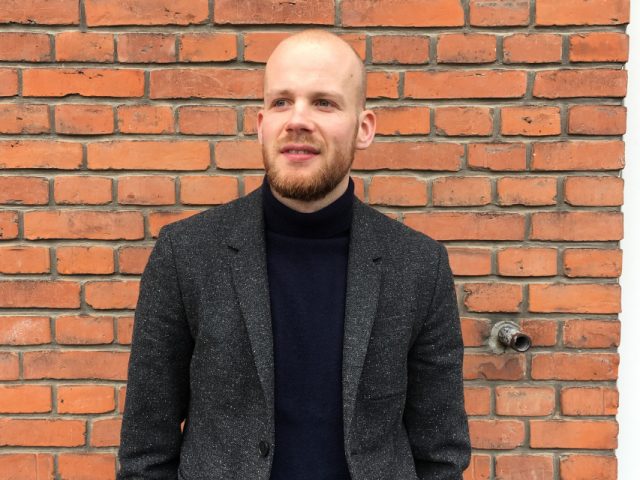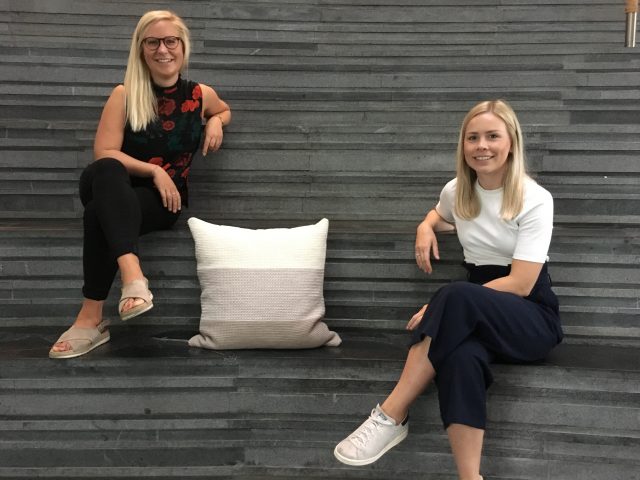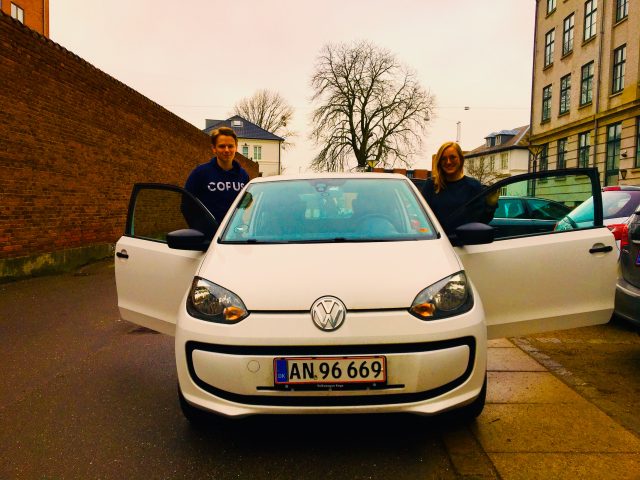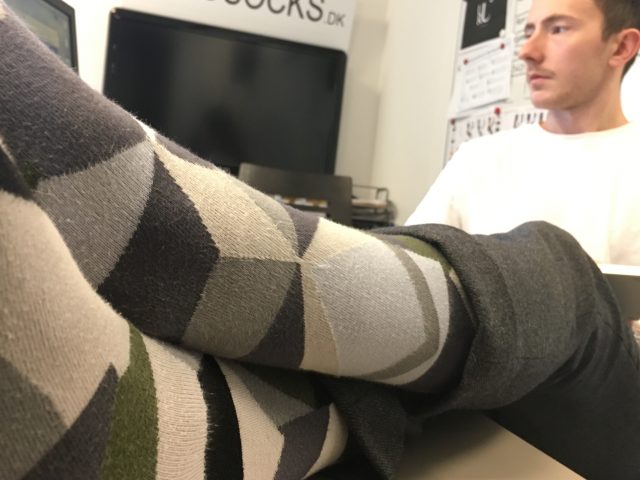Paulius thought he was going to work at a bank – instead he wants to change the world

Paulius Vegele wants us to buy products in a new way and take back the bargaining power. (Photo: Anne M. Lykkegaard & Mette Koors)
Have customers lost their bargaining power only to lose out on good deals? CBS alum Paulius Vegele thinks so. He has created a virtual marketplace where companies compete to give you the best offer. “Disruption backwards,” he calls it. A CBS professor says that today the bargaining process takes too much time and often involves strong emotions, resulting in customers haggling less.
Two fish for two dollars. Two fish and a pinch of salt for three dollars. Three fish for four dollars.
Back in the day, it was not that difficult to get a good deal on products, says Paulius Vegele, CBS alum and CEO of the virtual platform RVLhub, as he imitates three rivaling sellers. But today it is, he argues.
“Back then, you would feel special and respected as a customer, but nowadays companies don’t care about individual customers, only about volume,” he says.
He has created the platform RVLhub, which stands for rivaling hub. It’s a platform where companies compete for the customers’ business by making personalized deals on any product, whether it’s computers, handcrafted pillows or travel.
“It’s all about giving the bargaining power back to customers. People just accept the prices as they are, and are happy about seasonal sales and Black Friday, and that’s sad. We can have Black Friday every day if we just dare to bargain the price,” says Paulius Vegele enthusiastically now that RVLhub can haggle on behalf of customers.
David Jinkins, Assistant Professor at the Department of Economics at CBS, has specialized in international economics and applied economics, and he explains why bargaining is in decline.
“The reason is that there is a high cost to bargaining. It takes time, and often involves high emotions and frustration,” he says and continues:
“Consumers are willing to pay a little bit more to avoid haggling. This is why you and I don’t ask for discounts. It may work sometimes, but it isn’t worth the hassle and possibility of rejection. Consumers in today’s society typically only bargain the price when making investment purchases, such as cars or houses.”
A plan to change the world
Paulius Vegele, who holds a BSc in Service Management and a MSc in Accounting, Strategy and Control from CBS, is dressed in a light blue blazer with a flamingo pin in the lapel, a white shirt and dark pants. He looks like someone who’s ready to take over the financial world and that was what Paulius Vegele thought he was going to do.
“For a long time, I pictured myself working in the financial world. But during an exchange in Switzerland, which I worked very hard to achieve, I came to think about how large companies profit from our hard-earned cash,” he says and continues:
“I thought about this for about six months and came up with the idea of companies rivaling for our money. So, I made a business plan – or a ‘change the world’ plan.”



When asked how much he earns from it, he says: “Nothing.”
“I never thought about doing it for the money. I just want the bargaining power back,” he says and explains that he will have to have a job on the side. But for now, he spends all his time on the project in an effort to change our consumer behavior.
But have we really lost our bargaining power with companies? The answer from David Jinkins is divided.
“Broadly yes, but specifically no,” he says.
He explains that the most recent research indicates that companies across the economy have gained the power to control markets and prices. He gives an example from a working paper by Professor Jan De Loecker from the Katholieke Universiteit Leuven and Professor Jan Eeckhout from the University College of London.
“The difference between the price that companies charge and the price they pay has increased dramatically over the last forty years, from 18 percent on average in 1980 to 67 percent today. Other measures of market power such as profits and dividends are also higher than ever,” he says.
I strongly believe that customers will start to ask for change
Paulius Vegele
So, if this is the case, why haven’t we lost bargaining power completely?
“The retail and warehousing industries are different,” he says.
He points out that retailers are under pressure because it’s easier than ever now for customers to compare prices and find the best deal.
“Retailers are facing harsh competition, not only domestically but also from foreign companies,” he says and continues:
“Imagine buying a pair of jeans in Copenhagen in the 1970s. Consumers would have only had a few local retailers to choose from, and even then, it would have taken a lot of effort to check the prices around town. Now a consumer can easily compare local prices to those of a Japanese denim manufacturer, and have whatever she chooses shipped right to her door.”
The companies gain something too
RVLhub is primarily aimed at customers, but there are benefits for companies too.
According to Paulius Vegele, the companies who sign up to RVLhub will get a notification when there is a matching request for their products. This means that they don’t have to spend money on marketing.
“Companies don’t have to search for customers, they can just check out RVLhub. And that’s a plus for smaller businesses that may not have a huge marketing budget,” he says.
When asked if RVLhub could be outstripped by large enterprises that can more often compete on price compared to smaller businesses, he says:
“A good deal is not always about price. Maybe a customer is interested in getting a sustainable or socially responsible product. Then the price wouldn’t necessarily matter that much,” he says and adds that a company can also make an offer that might not be a 100 percent match to the customer’s requirements, but it could be a better deal in the end.
For the moment, Paulius Vegele is working hard to push his message out to consumers to make them ask companies for better deals. He compares his mission to the Occupy Wall Street movement.
“The Occupy Wall Street movement didn’t change much, but it made people think differently about the structure of the financial world. RVLhub is a movement too, but I think we can actually make a change because I strongly believe that customers will start to ask for change,” he says.






































































































































Comments